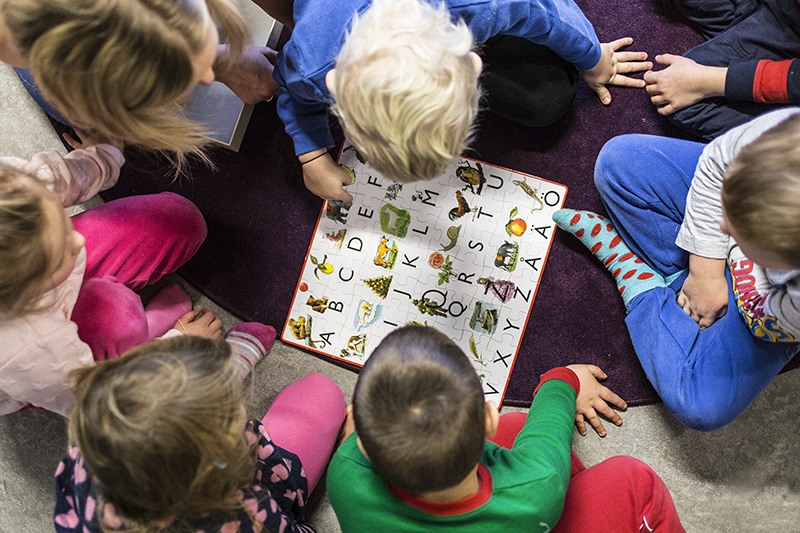Spel i förskolan stöttar förskolebarns lärande i matematik
DOI:
https://doi.org/10.3384/venue.2001-788X.3453Keywords:
spel, lek, matematik, taluppfattning, förskolaAbstract
I denna artikel presenteras resultatet från en studie i förskolan där barns lärande i matematik stått i fokus. Resultaten visar att förskolebarn som ges möjlighet att spela spel som innefattar siffror och tal stöttas i sitt lärande. Olika spel stöttar olika typer av förmågor hos barnen och kan med fördel användas i förskolans verksamhet för att stötta barns tidiga lärande i matematik.
Full-text of the article is available for this locale: Svenska.
References
Aster, M. G. Von, & Shalev, R. S. (2007). Number development and developmental dyscalculia. Developmental Medicine & Child Neurology, 49, 868–873. http://doi.org/10.1111/j.1469-8749.2007.00868.x
Booth, J. L., & Siegler, R. S. (2008). Numerical magnitude representations influence arithmetic learning. Child Development, 79(4), 1016–1031. http://doi.org/10.1111/j.1467-8624.2008.01173.x
Duncan, G. J., Dowsett, C. J., Claessens, A., Magnuson, K., Huston, A. C., Klebanov, P., … Japel, C. (2007). School readiness and later achievement. Developmental Psychology, 43(6), 1428–1446. http://doi.org/10.1037/0012-1649.43.6.1428
Elofsson, J. (2017). Children’s early mathematics learning and development: number game interventions and number line estimations. Diss. Linköping: Linköpings universitet, 2017.
Elofsson, J., Gustafson, S., Samuelsson, J., & Träff, U. (2016). Playing number board games supports 5-year-old children’s early mathematical development. The Journal of Mathematical Behavior, 43, 134–147. http://doi.org/10.1016/j.jmathb.2016.07.003
Griffin, S. (2007). Early intervention for children at risk developing mathematical learning difficulties. In D. B. Berch & M. M. M. Mazzocco (Eds.), Why is math so hard for some children? Baltimore: Paul H. Brookes Publishing.
Siegler, R. S., & Ramani, G. B. (2008). Playing linear numerical board games promotes low-income children’s numerical development. Developmental Science, 11(5), 655–661. http://doi.org/10.1111/j.1467-7687.2008.00714.x

Downloads
Published
How to Cite
Issue
Section
Categories
License
Copyright (c) 2021 Jessica Elofsson

This work is licensed under a Creative Commons Attribution-NonCommercial 4.0 International License.
 Unless otherwise stated, works from 2019 are licensed under a Creative Commons Attribution-NonCommercial 4.0 International License.
Unless otherwise stated, works from 2019 are licensed under a Creative Commons Attribution-NonCommercial 4.0 International License.




